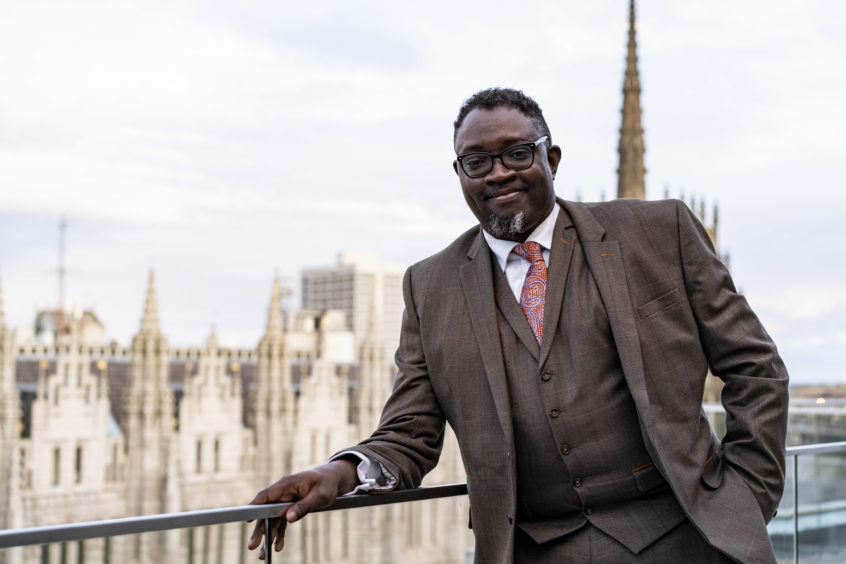
The Nigerian author Chimamanda Ngozi Adichie once spoke of being told by a writing tutor that a plot she had written of a middle-class African family was inauthentic. She was met with disbelief when she revealed the story was autobiographical.
The same could easily be said about 2020. It was in every respect implausible; a year in which the world stayed at home and nearly two million lives were lost to the coronavirus pandemic.
Before the nationwide lockdown imposed in response, the energy sector was experiencing something of a resurgence following the downturn of 2014-2018; the lockdown and concurrent oil price drop plunged the industry into another downturn, projects were swiftly cancelled and furlough and redundancies inevitably followed.
In an interview with Energy Voice in early March, I noted that diversity is often the first casualty when companies face challenging times. As a diversity advocate buoyed by the seemingly increased openness to diversity in all its forms within our sector, I wondered with concern what impact this lockdown might have on the advances of recent years. With time, however, it became clear that we had learned lessons from previous crises.
Another of the defining events of 2020 – the killing of George Floyd in the USA, and the subsequent global movement for change – directly impacted our industry: never have I seen leaders boldly call for change in the way they did last year. The AFBE-UK team got busy, producing the ACCESS-A plan for companies looking for practical ways to address racial inequality in their organisations.
Since June I’ve spoken at more than 30 online events on the issues of diversity and inclusion and racial parity, and participated in panels aimed at helping aspiring engineers develop the tools to transition into the workforce.
It has been very encouraging to see company leaders being prepared to have the difficult conversations, and to see the effect on their workforce even at a time when difficult decisions are being made around redundancies. It has also been great to see many of my colleagues in the D&I space educate themselves about racism.
For AFBE-UK, 2020 demanded a change of approach – but no let-up in our activities:
- our STEM outreach programme team NextGen switched from school visits to online events from April, covering subjects from coding to forensics in multiple presentations to young mentees
- we collaborated successfully with Baker Hughes, WSP in the UK, Spirit Energy and Shell to run the Transition programme, an initiative aimed at preparing university students for the world of work. Like NextGen, these sessions drew great testimonials
- our Real Project sessions reflected the energy transition and the power of big data – two of the most important aspects of our sector’s future – and experienced professionals offered insights on projects they had worked on
- we unveiled our mentoring programme, and extended our mentoring objectives beyond the UK by forging a partnership with Zambian-based mentoring group When Females Lead
- we sought to address the problem of BME (black and minority ethnic) under-representation at the highest levels of companies by launching the leadership programme led by Dr Roy Bitrus. We’ve interviewed many senior leaders from minority ethnic backgrounds, and in 2021 will be rolling out a set of modules designed to equip BME people for leadership roles.
One of my highlights in 2020 was hosting a Black History Month (BHM) event titled Racial Parity in Engineering – The Stories Behind the Statistics, this well attended event was jointly hosted by AFBE-UK and the Royal Academy of Engineering. In a powerful introductory speech, the CEO of the Royal Academy of Engineering Dr Hayaatun Sillem CBE noted: “Racism becomes institutionalised when society fails to hold companies and other institutions to account for their actions.”
Dr Sillem also outlined two practical steps for leaders to improve racial parity – facing up to any internal blocks, and drawing from existing good practice (or creating it where it doesn’t exist).
Dr Sillem is right. I have attended diversity events where there is little genuine desire to engage with the inconvenient truths about racism; often opting to speak in generic terms. I have heard some business leaders whose actions do not appear to match the rhetoric. This concerns me.
As we look forward to 2021 and our 10th year in Scotland, the jury is still out on the answers to the questions inspired by that BHM event. Will we retain the practices so readily adopted in 2020? By what measures shall we track the progress made since the tragic death of George Floyd? How do we curb the inevitable backlash from those who fear this has all gone too far?
I am determined that these questions do not go unanswered. How else does one make sense of such an implausible year?
Dr Ollie Folayan is chairman of AFBE-UK Scotland, a social enterprise that supports all young people to consider a career in engineering, in particular those from under-represented groups. The group is part of AFBE-UK which is based in London. Thousands of young people have attended events or been supported by both organisations. The AFBE-UK Diversity & Inclusion Awards are due to be held in Aberdeen later this year.
